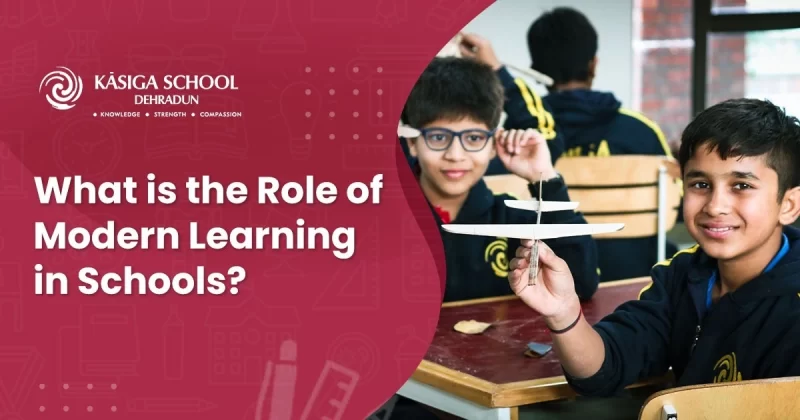In today’s “modern” world, education isn’t just about memorizing facts and figures but about equipping students with the skills they need to thrive in the 21st century and in this journey modern learning in schools plays a pivotal role by revolutionizing traditional educational methods and preparing students for the challenges and opportunities of the digital age.
But what exactly is modern learning and how does it shape the landscape of education in schools?
Modern learning encompasses a variety of approaches that prioritize active engagement, critical thinking, collaboration and creativity; it moves away from rote memorization and one-size-fits-all teaching towards personalized, student-centered instruction. Here’s a breakdown of the role it plays in schools.
Emphasizes Personalized Learning
One of the hallmarks of modern learning in schools is its emphasis on personalized instruction tailored to individual student needs, interests and learning styles, this approach recognizes that every student is unique and learns at their own pace.
By implementing differentiated teaching and adaptive technology, teachers can meet the needs of various learners and make sure that every student gets the help he/she needs to succeed.
Makes Way for Technology Integration
Nowadays, technology is really important in schools because it gives students access to lots of stuff to learn from like cool tools and fun ways to learn.
Think about smart boards, apps that help with learning and even virtual reality stuff, all these tech things make learning more interesting and help students understand better.
Encourages Project-Based Learning
Project-based learning (PBL) is another cornerstone of modern learning that encourages students to tackle real-world problems and projects collaboratively.
Instead of passively receiving information, students actively apply their knowledge and skills to solve challenges which in turn fosters critical thinking, creativity and teamwork.
Furthermore, PBL empowers students to take ownership of their learning and instills a sense of curiosity, resilience and self-direction.
Instills Critical Thinking and Problem-Solving
In today’s complex and rapidly evolving world, critical thinking and problem-solving skills are more important than ever and the modern education system in India cultivates these essential skills by encouraging inquiry, analysis and reflection.
Through inquiry-based learning, students learn to ask meaningful questions, gather evidence, evaluate arguments and construct well-reasoned conclusions, by honing their critical thinking abilities, students become adept at making informed decisions and adapting to change.
Encourages Collaborative Learning
Collaboration lies at the heart of the modern education system as by engaging in collaborative activities such as group projects, discussions and peer feedback, students learn to communicate effectively, resolve conflicts and work productively with others.
Also, collaborative learning not only strengthens interpersonal skills but fosters a sense of community and mutual support within the classroom.
Instills Lifelong Learning Mindset
Beyond academic knowledge and skills, modern learning instills a lifelong learning mindset and emphasizes the importance of curiosity, adaptability and continuous growth.
In a world where information is constantly evolving, the ability to learn, unlearn and relearn is paramount. By nurturing a growth mindset and fostering a love of learning, schools like Kasiga Boarding School prepare students to navigate future challenges with confidence and resilience.
Wrapping It Up
So, to sum it up, the modern education system now is changing how students learn, making it better. When schools use these ideas, they help students do well in a world that’s always changing and they become people who keep learning their whole lives, ready to handle whatever comes their way.


